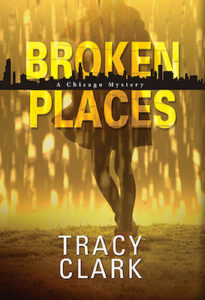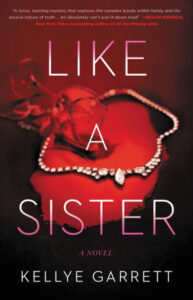I’ve been a mystery lover since I picked up my first Nancy Drew book. For me, reading mysteries is about enjoying the writing while trying to figure out “who done it.” As an adult, many of the mysteries I’ve been drawn to feature a main character coping with grief while trying to navigate their way forward. Sometimes there’s an added twist of the protagonist being falsely accused of the crime and the situation forces them to prove their innocence—in addition to bringing the guilty party to justice. With the worlds of these protagonists no longer making sense, they often take risks outside their norms, making life or death choices as grief fuels their quest. But by taking action, the characters are able to regain a sense of control over their lives.
In my new mystery, A Deadly Bone to Pick, Molly Madison moves cross country after her cheating husband, Stefan is murdered. Though the killer has been arrested and is awaiting trial, the hometown cops and Stefan’s family all think Molly was somehow involved in the crime. Hoping for a fresh start, she settles in Pier Point, California. But when one of her dogs finds a severed hand on the beach, the local police dig into her past and she comes under further scrutiny. When a neighbor turns up dead, Molly knows it’s up to her to prove her innocence. With the help of two loveable dogs, she begins sniffing out clues to discover who is really responsible for this latest crime.

Broken Places by Tracy Clark
When Father Ray Heaton is found murdered in his church along with a dead gangbanger, ex-cop Cass Raines is crushed. Father Ray was a man who stood up for what was right, no matter the cost and the only father figure she’s ever known. The lead detective assigned to the case is ready to dismiss the priest’s death as a burglary gone wrong, but the crime scene doesn’t make sense to Cass, nor does the motive of small-time theft. Driven by grief and the need to see justice done, Cass investigates and, in the end, regains her emotional stability.
This first book in Clark’s Chicago Mystery series was included on the Library Journal’s Best Crime Fiction list for 2018, as well as nominated for the Lefty and Anthony Awards for Best Debut Novel, and the Shamus Award for Best First PI Novel.

Razorblade Tears by S. A. Cosby
In this 2022 Edgar Award-nominated crime novel, the main characters take action after their gay sons are killed in a hate crime. Ike Randolph and Buddy Lee are both ex-cons who were unable to accept their sons when they were alive, damaging those relationships. After the murders, the two fathers form a tenuous alliance, working together to uncover who was responsible for the crime and wreak vengeance upon them. In a recent interview, part of the Friends of the Key West Library 2022 Speakers Series, author Barbara Ross asked Cosby about what motivates the main characters and he said the two men are “mired in guilt and grief.” It is through their grief-fueled journey that both men find purpose again.

Like A Sister by Kellye Garrett
When Desiree Pierce is found dead in a playground in the Bronx, the cause of death for the disgraced reality star is quickly declared an overdose. Her half-sister, Lena Scott, hasn’t been close with Desiree since childhood, but knows she would never be caught dead in the Bronx. The two led divergent lives, with twenty-five-year-old Desiree drawn to the spotlight while older sister Lena is a loner, focused on her studies at Colombia. With the cops unwilling to listen to her about the suspicious nature of Desiree’s death, Lena is determined to find justice for her. When she begins investigating her sister’s life and what really led to her death, family secrets and old resentments are revealed. Lena’s struggle to find the truth gives her the means of dealing with the loss—even when it means risking her own life.
This soon-to-be-released domestic suspense novel comes out on March 8.

A Dangerous Place and Journey to Munich by Jacqueline Winspear
Winspear has written seventeen books in the Maisie Dobbs series (the seventeenth, A Sunlit Weapon, comes out March 22). In book number eleven, A Dangerous Place, the main character struggles with the loss of her husband and unborn child. Feeling displaced from the life she’d expected to be living and unable to face her home or family, Maisie travels first to America, then India. When summoned back to England over concerns about her father’s health, Maisie begins the journey, but can’t bring herself to complete it. Disembarking in the British garrison town of Gibraltar, she crosses the border into Spain and volunteers as a nurse. Maisie continues to struggle emotionally while the Spanish Civil War rages, throwing herself into hospital work. When she discovers the dead body of a local wedding photographer, the police suspect his death is the result of a robbery gone wrong and a war refugee is to blame. Maisie thinks this unlikely since an expensive camera was still on the victim’s body when she found him. Unwilling to let the matter go, she pushes away thoughts of her own loss and throws herself into investigating.
Winspear continues this theme of loss in book twelve, Journey to Munich, as Maisie struggles to find meaning in her life, “the sneaker wave of grief catching her in its riptide pull once again.” She returns to using service to others as a coping mechanism, taking a perilous journey to Nazi Germany on behalf of her government while sneaking in a secret side mission for a former friend. In both books, the main character’s grief, and her resulting inability to return to her normal life, are what drive her to act.

Her Last Breath, by Hilary Davidson
When her sister Caroline dies suddenly, Deirdre Crawley is grief stricken. Her grief quickly turns to shock when she receives a message from her dead sister, Caro, who claims her husband got away with killing his first wife. She goes on to say that if she should die mysteriously, Deirdre must bring him to justice. Up until reading this, Deirdre had no reason to suspect her sister’s death wasn’t caused by an undiagnosed heart problem.
Deirdre starts her path as a lone—with few friends, her mother dead, and estranged from her father. Caro was the most important person in her life and Deirdre can’t ignore the possibility her sister might have been murdered. A packet of photographs and a flash drive sent by Caro give her a place to start digging. Deirdre tells herself she can’t save her sister, but she “can get justice for her.” During the course of her search, Deirdre renews ties with her father and finds a way to move forward with her life.
***


















